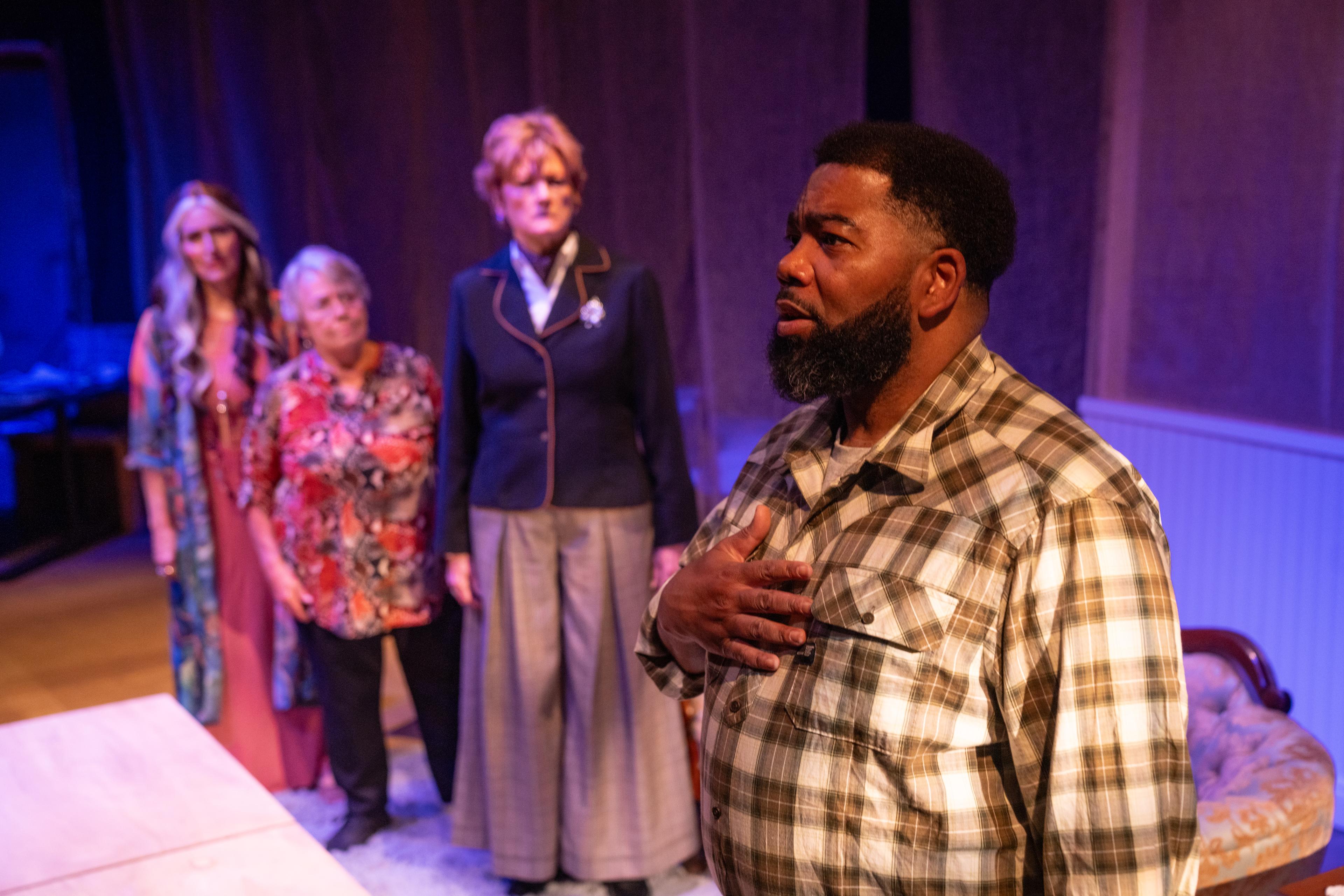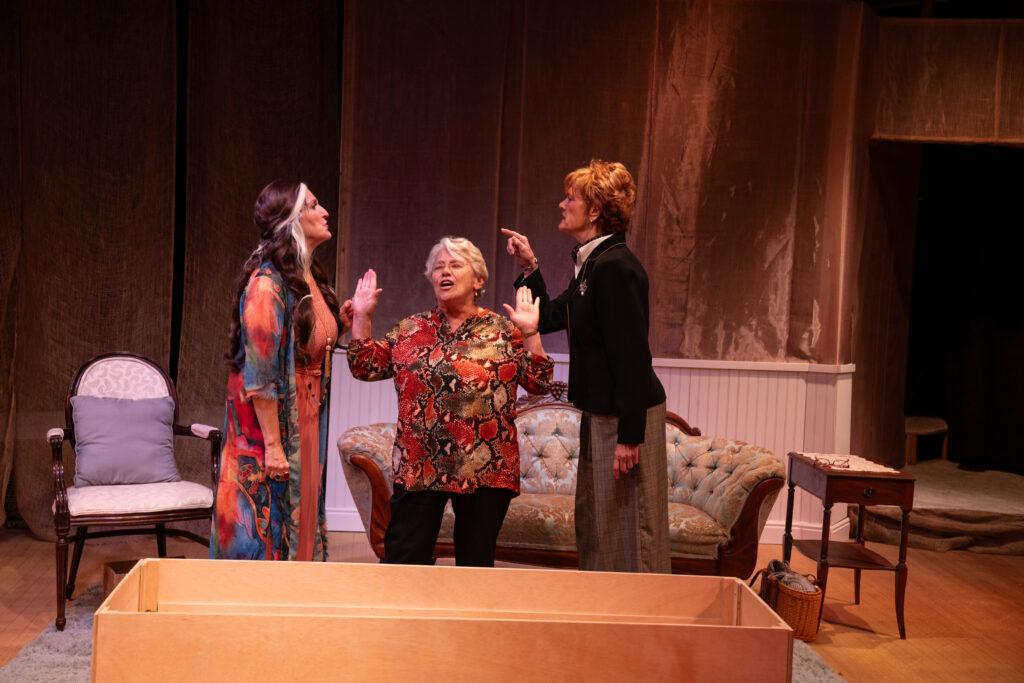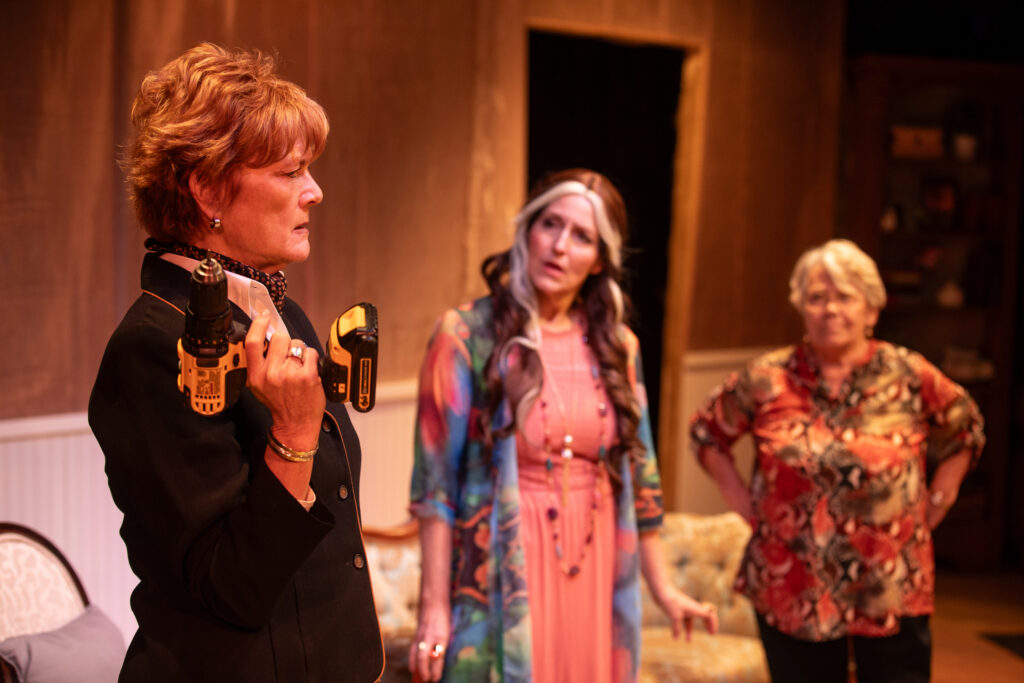
Artists have long used their voices to bring light to causes that are typically unseen by the larger society. But the Black Lives Matter movement and the nation’s racial reckoning brought a special challenge: How are – or even should – white artists be allies in the movement?
In the past twelve months, Colorado playwright Jeffrey Neuman has seen three of his plays premiere with three different Colorado companies. “The Headliners,” at the Cherry Creek Theater, the site-specific production of “Pride of the Farm” at The Catamounts, and now "The Road to Lethe" at Benchmark Theatre in Lakewood.
Neuman, a white playwright, was inspired to write the latter play after the murder of George Floyd and the subsequent Black Lives Matter movement. He sought to explore his role as an ally and to create a work that would resonate with audiences.
"And I was really kind of struggling with my own role in that and what it means to be an ally, and whether or not as an ally I was doing enough or being enough and where and how my allyship was possibly toxic unwittingly," Neuman said.
He admitted “The Road to Lethe” is a very different play than anything he has written before, saying, “This one is my first real break with naturalism. It's steeped in ancient lore, but it is ripped from today's headlines."
In the new play, Neuman uses the Greek myth "The Judgement of Paris," as the foundation to explore systemic racism and white saviorism today. Three older white women receive a mysterious Amazon package and hire a black handyman to assemble the contents. The handyman then becomes entangled in their feud.
Using the Greek deities as a metaphor, Neuman said he hopes to address how our actions have ripple effects, even if we don't know what they are. Neuman described the tone as epic and mythic, with moments of levity. Although he typically prefers to avoid the rehearsal process, he was more involved in the production process than usual.
"I've probably been more involved with this one than I have been in any of my other plays. Because the cast really wanted me to be involved," Neuman said.
“The Road to Lethe” Director Betty Hart has built a reputation for working with playwrights on new work.
“It's very humbling to have someone want to work with you and to have faith in you. I love Jeff's work and I'm really excited to get to work and really work with these incredible individuals to bring this story to life,” Hart said.

Hart, in fact, welcomed and encouraged Neuman's involvement, and emphasized the importance of having the playwright involved in the rehearsal process. It allows the actors to "make sure that we're telling the story that they really envisioned inside themselves when they were alone in a room," Hart said.
Hart described having a playwright in the room as a joy, “because if a phrase is just off by a few words, you can just turn and say, ‘Did you mean that?’"
The cast expressed gratitude for the supportive environment. eden origin, who uses lowercase letters in their name and plays P in the show, was initially unsure about exploring the subject from a white man's perspective.
origin said their doubts didn’t last.
"And then I got to read the play. I haven't had work that has caused me to be this intuitive and this active in a while, a long time. I feel a lot of sanctity in this space," origin said.
Arthur McFarlane III returns to the stage after a 10-year break to play Kal, the handyman in the play. He said the script hit him like a ton of bricks.
"There is a point in the play where Kal realizes what is really happening with the three women …. And his response to that is something that I feel that not only that I needed, it's something that I feel that we need as a community. I feel like it will spark something," McFarlane III said.

The actresses portraying the white women valued hearing origin and McFarlane's personal stories to better inhabit their prejudiced characters.
Christine Kahane, who plays Millie, said playing a character antithetical to herself has knocked her to her knees but she credits the team with making it safe to do.
“I'm in such a safe container,” she said. “And it is being made by every single person in this cast and production … to come up against all of that stuff. It's like, ‘It's ok, you can just fall back and feel it.’”
Jennifer Condreay, who plays Clovis, admitted that she was initially hesitant to audition for the play because she had little experience with new works, but she was drawn to the play's "important" themes and has found it to be a "wonderful challenge.”
Condreay credits McFarlane and origin for sharing personal stories that she said have added to the experience of being in the show,
“To hear their stories and then to then slip into this woman who is totally an example of white privilege — It's been humbling and expanding to my experience as a human being,” Condreay said.
Barbara Porreca, who plays June, joked that she was drawn to the play because it allowed her to play a character who is "exactly my age." Porreca added that exploring her character has been a learning experience for her. “And the challenge of learning and feeling some, not new, but some new things that I hadn't explored in terms of race has been incredibly eye-opening.”
Neuman said the play is a risk — the staging, telling the story itself — but one worth doing.
“When you invite somebody to see something that is new, that is a risk, it is a trust fall between the audience and the production company,” Neuman said, “I really would love people to come here because I think this is a play that people are going to be hungry to talk on the car ride home.”
The world premiere of ”The Road to Lethe” at the Benchmark Theatre runs through May 18.
- Why Town Hall Arts Center is hosting a ‘Black Out’ night for its production of the musical ‘Raisin’
- The Aurora Fox launches a 10-year commitment to produce 10 plays by two-time Pulitzer Prize winner August Wilson
- For two emerging playwrights, Colorado New Play Summit is a convergence of creativity, inclusion, and representation









